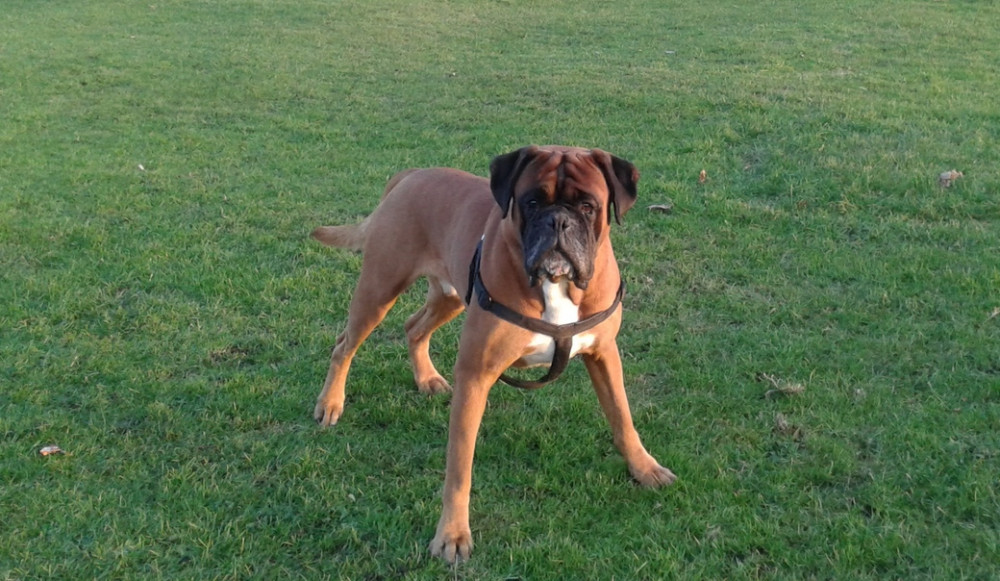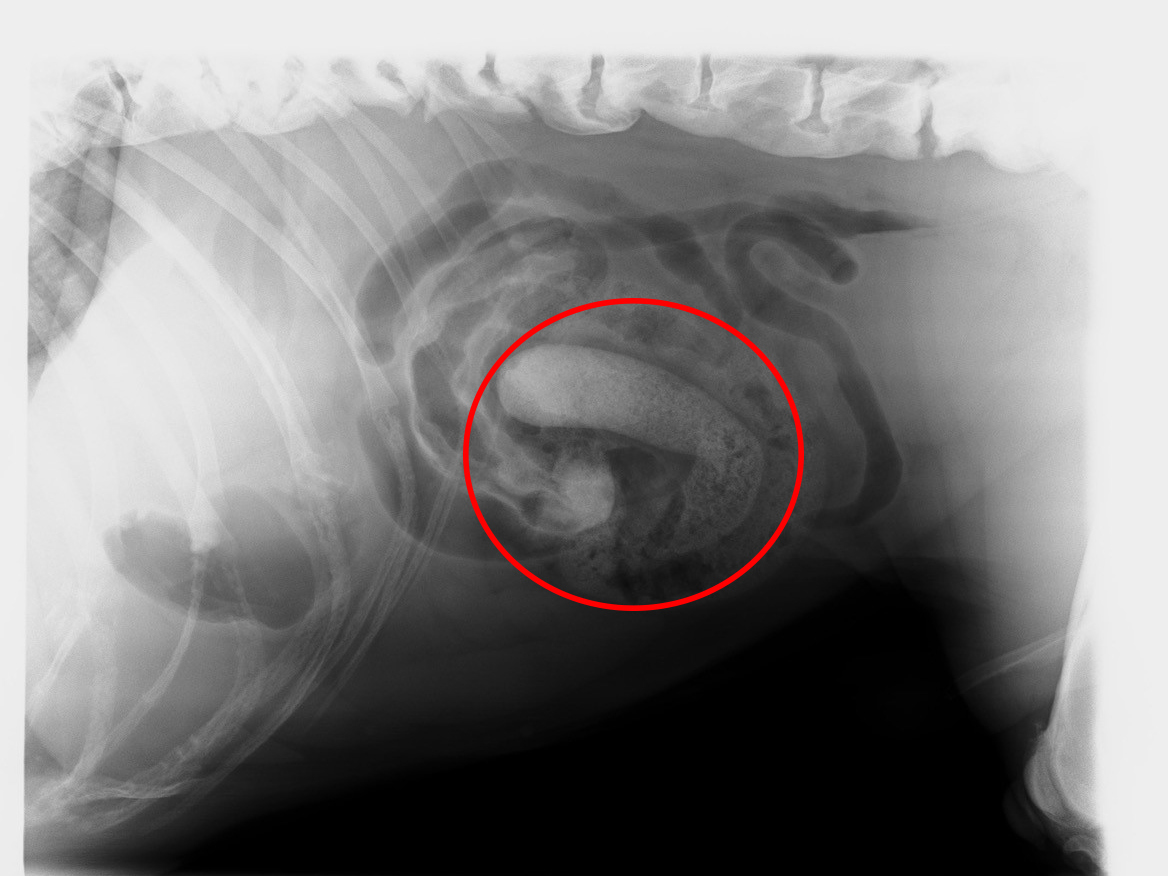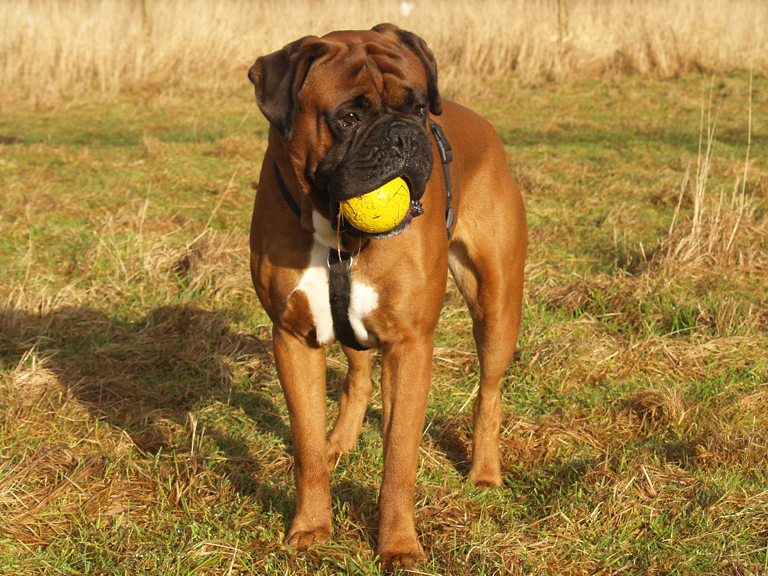Do you need help?

Vet comes to the rescue of boxer who swallowed so much sand it made him critically ill
The beach may be one of Ben’s favourite places to play.
But unfortunately for the eight-year-old boxer, his love of racing around on the sand resulted in him being rushed to Vets Now in Colwyn Bay with what seemed like a vomiting bug.
It turned out Ben was suffering from a potentially serious condition called intestinal sand impaction.
This happens when dogs inadvertently swallow sand while digging or repeatedly picking up sandy balls and toys – and it requires urgent veterinary treatment.

Ben’s owner Stuart Prince had taken him for a Saturday morning walk on the picturesque beach at Prestatyn with a new toy he’d just bought – just as he did most days and nothing seemed unusual apart from it being extremely windy.
Stuart said: “We moved here from Manchester, but we used to come to the beach a lot before that because my mum lives here.
“On this particular day it was incredibly windy, and the sand was blowing in our faces – I guess, being lower to the ground, he probably ingested a lot of it. Ben also had a new toy, a kind of tyre that was hollowed out.
“I thought at the time that it seemed to be filling with sand, and looking back, he must have been constantly swallowing a hell of a lot of it. When we got home, my trainers were absolutely full of sand, so I guess his toy will have been too.”
It wasn’t until hours later that Stuart noticed that Ben had become restless and wouldn’t stay still.
After the dog vomited twice and showed signs of being in pain, Stuart took him to our clinic in Colwyn Bay which provides out-of-hours emergency care for pets in the area.
Vet surgeon Louise Harvey was on duty on the Saturday evening Ben was admitted. She explained: “Ben was bright and wagging his tail when he was brought in and his temperature and heart rate were normal.
“But he was panting quite heavily and I could feel a hard area in his abdomen. When I examined this mass it caused Ben to flinch in pain.
“We gave Ben painkillers and intravenous fluids and sedated him, before carrying out an ultrasonography examination and taking x-rays of his abdomen. I was able to identify soft tissue opacity in his intestine which is indicative of a possible blockage.
“When Ben had woken up from his sedation, he was taken outside and promptly passed very sandy diarrhoea.
“Given the clinical findings, the passing of sandy diarrhoea and Ben’s history of beach walking, we diagnosed sand impaction of the distal small intestine. While rare, this condition can be fatal.
“Sometimes these cases can require surgery, but we kept Ben under close observation for the rest of the weekend and managed to avoid this.”
Ben returned to his daytime vets on Monday morning and was discharged the following day.

Louise added: “I’ve seen several sand impactions in horses during my career but Ben’s case is the first time I’ve seen it in a dog. Having said that, I’ve always stopped my dogs from carrying balls on the beach for this very reason.
“When the conditions are right, there are few better places to walk your dog than on the beach but owners need to be aware of the risks of dogs carrying sandy toys. Signs of intestinal sand impaction can include vomiting, lethargy and abdominal pain.”
One study into dogs diagnosed with intestinal sand impaction found prognosis is good if treatment is carried out early enough. Four of the eight dogs in the study required surgery and one did not survive.
Stuart added: “At first when I took Ben to Vets Now, they were concerned it could be a tumour, so obviously I was really worried. I was so surprised that sand could do what it did.
“He’s back to his normal self now, but I know it could have been a lot more serious. I’d never heard of this happening, but I had a discussion with a man on the caravan park near here and he said that it happened to his dog and because of the stress of it all, it didn’t make it.”
The Vets Now clinic in Colwyn Bay – where Ben received treatment – has been rated as “outstanding” in the delivery of emergency and critical care by the Royal College of Veterinary Surgeons.
It’s one of a nationwide network of Vets Now clinics and pet emergency hospitals that are open through the night, seven-days-a-week, and day and night on weekends and bank holidays, to treat any pet emergencies that may occur.
All of Vets Now’s out-of-hours clinics and 24/7 hospitals have a vet and vet nurse on site at all times.
